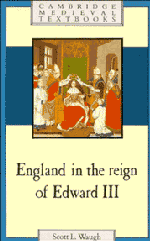Book contents
- Frontmatter
- Contents
- List of figures and tables
- Acknowledgements
- Map 1 Towns and villages mentioned in Chapters 3–6
- Map 2 Ecclesiastical sites mentioned in Chapter 9
- Part I Overview
- Part II Economic challenges
- Part III Government and communities
- 8 Nobility and gentry
- 9 The church and clergy
- 10 Law and order in local communities
- 11 Administration and finance
- Part IV Politics
- Glossary
- Bibliography
- Index
8 - Nobility and gentry
Published online by Cambridge University Press: 05 June 2012
- Frontmatter
- Contents
- List of figures and tables
- Acknowledgements
- Map 1 Towns and villages mentioned in Chapters 3–6
- Map 2 Ecclesiastical sites mentioned in Chapter 9
- Part I Overview
- Part II Economic challenges
- Part III Government and communities
- 8 Nobility and gentry
- 9 The church and clergy
- 10 Law and order in local communities
- 11 Administration and finance
- Part IV Politics
- Glossary
- Bibliography
- Index
Summary
Contemporary thought ranked society in orders or grades, setting those of high degree apart from those of low. In the concept of the three orders the knights and church were supported by the work of the peasantry while they provided protection and prayers. In the image of the mystical body social, the head and right arm were the king, princes, prelates, and knights. Most, if not all, of the nobility equated gentil with noble; gentilesse separated the gentils from the churls. Because of the central position the nobility occupied in society as well as in Edward's schemes, it is necessary to understand who constituted this governing elite and the forces that worked to bring it together or pull it apart.
What constituted nobility or gentilesse? Henry of Lancaster, clearly the noblest of men, provided one answer: ‘It seems to me that for one who ought by right to judge the gentility of a person, it would be useful to know three things before he was entitled to be held as gentle. The first is to know if his father was gentle. The second, if his mother was a gentlewoman as well. And the third is to know if he holds himself in words and deeds as gentle and a friend of the company of gentlemen. And he who does not mimic his father brings great shame on his mother.
- Type
- Chapter
- Information
- England in the Reign of Edward III , pp. 117 - 135Publisher: Cambridge University PressPrint publication year: 1991



